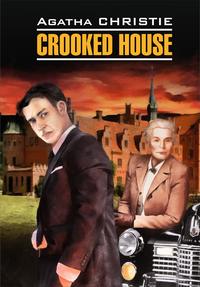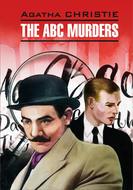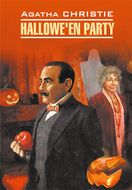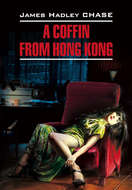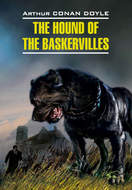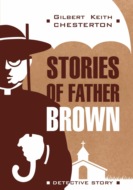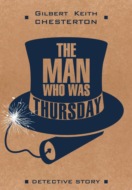Kitabı oku: «Crooked House / Скрюченный домишко. Книга для чтения на английском языке», sayfa 2
Chapter 4
On the following day I went down to Three Gables with Taverner.
My position was a curious one. It was, to say the least of it, quite unorthodox. But the Old Man has never been highly orthodox.
I had a certain standing. I had worked with the Special Branch at the Yard during the early days of the war.
This, of course, was entirely different—but my earlier performances had given me, so to speak, a certain official standing.
My father said:
‘If we’re ever going to solve this case, we’ve got to get some inside dope40. We’ve got to know all about the people in that house. We’ve got to know them from the inside– not the outside. You’re the man who can get that for us.’
I didn’t like that. I threw my cigarette end into the grate as I said:
‘I’m a police spy? Is that it? I’m to get the inside dope from Sophia whom I love and who both loves and trusts me, or so I believe.’
The Old Man became quite irritable. He said sharply:
‘For heaven’s sake don’t take the commonplace view. To begin with, you don’t believe, do you, that your young woman murdered her grand father?’
‘Of course not. The idea’s absolutely absurd.’
‘Very well—we don’t think so either. She’s been away for some years, she has always been on perfectly amicable terms with him. She has a very generous income and he would have been, I should say, delighted to hear of her engagement to you and would probably have made a handsome marriage settlement41 on her. We don’t suspect her. Why should we? But you can make quite sure of one thing. If this thing isn’t cleared up, that girl won’t marry you. From what you’ve told me I’m fairly sure of that. And mark this, it’s the kind of crime that may never be cleared up. We may be reasonably sure that the wife and her young man were in cahoots42 over it—but proving it will be another matter. There’s not even a case to put up to the DPP43 so far. And unless we get definite evidence against her, there’ll always be a nasty doubt. You see that, don’t you?’
Yes, I saw that.
The Old Man then said quietly:
‘Why not put it to her?’
‘You mean—ask Sophia if I—’ I stopped.
The Old Man was nodding his head vigorously.
‘Yes, yes. I’m not asking you to worm your way in44 without telling the girl what you’re up to. See what she has to say about it.’
And so it came about that the following day I drove down with Chief Inspector Taverner and Detective Sergeant Lamb to Swinly Dean.
A little way beyond the golf course, we turned in at a gateway where I imagined that before the war there had been an imposing pair of gates. Patriotism or ruthless requisitioning had swept these away. We drove up a long curving drive flanked with rhododendrons and came out on a gravelled sweep in front of the house.
It was incredible! I wondered why it had been called Three Gables. Eleven Gables would have been more apposite! The curious thing was that it had a strange air of being distorted—and I thought I knew why. It was the type, really, of a cottage, it was a cottage swollen out45 of all proportion. It was like looking at a country cottage through a gigantic magnifying-glass. The slant-wise beams, the half-timbering, the gables—it was a little that had grown like a mushroom in the night!
Yet I got the idea. It was a Greek restaurateur’s idea of something English. It was meant to be an Englishman’s home—built the size of a castle! I wondered what the first Mrs Leonides had thought of it. She had not, I fancied, been consulted or shown the plans. It was, most probably, her exotic husband’s little surprise. I wondered if she had shuddered or smiled.
Apparently she had lived there quite happily.
‘Bit overwhelming, isn’t it?’ said Inspector Taverner. ‘Of course, the old gentleman built on to it a good deal—making it into three separate houses, so to speak, with kitchensand everything. It’s all tip-top inside, fitted up46 like a luxury hotel.’
Sophia came out of the front door. She was hatless and wore a green shirt and a tweed skirt.
She stopped dead when she saw me.
‘You?’ she exclaimed.
I said:
‘Sophia, I’ve got to talk to you. Where can we go?’
For a moment I thought she was going to demur, then she turned and said: ‘This way.’
We walked down across the lawn. There was a fine view across Swinly Dean’s No 1 course—away to a clump of pine trees on a hill, and beyond it, to the dimness of hazy countryside.
Sophia led me to a rock-garden, now somewhat neglected, where there was a rustic wooden seat of great discomfort, and we sat down.
‘Well?’ she said.
Her voice was not encouraging.
I said my piece—all of it.
She listened very attentively. Her face gave little indication of what she was thinking, but when I came at last to a full stop, she sighed. It was a deep sigh.
‘Your father,’ she said, ‘is a very clever man.’
‘The Old Man has his points. I think it’s a rotten idea myself—but—’
She interrupted me.
‘Oh no,’ she said. ‘It isn’t a rotten idea at all. It’s the only thing that might be any good. Your father, Charles, knows exactly what’s been going on in my mind. He knows better than you do.’
With a sudden almost despairing vehemence, she drove one clenched hand into the palm of the other.
I’ve got to have the truth. I’ve got to know!
‘Because of us? But, dearest—’
‘Not only because of us, Charles. I’ve got to know for my own peace of mind. You see, Charles, I didn’t tell you last night—but the truth is—I’m afraid.’
‘Afraid?’
‘Yes—afraid—afraid—afraid. The police think, your father thinks, you think, everybody thinks—that it was Brenda.’
‘The probabilities—’
‘Oh yes, it’s quite probable. It’s possible. But when I say, “Brenda probably did it,” I’m quite conscious that it’s only wishful thinking. Because, you see, I don’t really think so!
‘You don’t think so?’ I said slowly.
‘I don’t know. You’ve heard about it all from the outside as I wanted you to. Now I’ll show it you from the inside. I simply don’t feel that Brenda is that kind of a person— she’s not the sort of person, I feel, who would ever do anything that might involve her in any danger. She’s far too careful of herself.’
‘How about this young man? Laurence Brown.’
‘Laurence is a complete rabbit. He wouldn’t have the guts47.’
‘I wonder.’
‘Yes, we don’t really know, do we? I mean, people are capable of48 surprising one frightfully. One gets an idea of them into one’s head, and sometimes it’s absolutely wrong. Not always—but sometimes. But all the same, Brenda’—she shook her head—‘she’s always acted so completely in character. She’s what I call the harem type. Likes sitting about and eating sweets and having nice clothes and jewellery and reading cheap novels and going to the cinema. And it’s a queer thing to say, when one remembers that he was eighty-seven, but I really think she was rather thrilled by grandfather. He had a power, you know. I should imagine he could make a woman feel—oh—rather like a queen— the sultan’s favourite! I think—I’ve always thought—that he made Brenda feel as though she were an exciting, romantic person. He’s been clever with women all his life—and that kind of thing is a sort of art—you don’t lose the knack of it, however old you are.’
I left the problem of Brenda for the moment and harked back to49 a phrase of Sophia’s which had disturbed me.
‘Why did you say,’ I asked, ‘that you were afraid?’
Sophia shivered a little and pressed her hands together.
‘Because it’s true,’ she said in a low voice. ‘It’s very important, Charles, that I should make you understand this. You see, we’re a very queer family… There’s a lot of rutblessness in us—and—different kinds of ruthlessness. That’s what’s so disturbing. The different kinds.’
She must have seen incomprehension in my face. She went on, speaking energetically.
‘I’ll try and make what I mean clear. Grandfather, for instance. Once when he was telling us about his boyhood in Smyrna, he mentioned, quite casually, that he had stabbed two men. It was some kind of a brawl—there had been some unforgivable insult—I don’t know—but it was just a thing that had happened quite naturally. He’d really practically forgotten about it. But it was, somehow, such a queer thing to hear about, quite casually, in England.’
I nodded.
‘That’s one kind of ruthlessness,’ went on Sophia, ‘and then there was my grandmother. I only just remember her, but I’ve heard a good deal about her. I think she might have had the ruthlessness that comes from having no imagination whatever. All those fox-hunting forebears—and the old Generals, the shoot-’em-down type. Full of rectitude and arrogance, and not a bit afraid of taking responsibility in matters of life and death.’
‘Isn’t that a bit far-fetched?’
‘Yes, I dare say—but I’m always rather afraid of that type. It’s full of rectitude but it is ruthless. And then there’s my own mother—she’s an actress—she’s a darling, but she’s got absolutely no sense of proportion. She’s one of those unconscious egoists who can only see things in relation to how it affects them. That’s rather frightening, sometimes, you know. And there’s Clemency, Uncle Roger’s wife. She’s a scientist—she’s doing some kind of very important research—she’s ruthless too, in a kind of cold-blooded impersonal way. Uncle Roger’s the exact opposite—he’s the kindest and most lovable person in the world, but he’s got a really terrific temper. Things make his blood boil and then he hardly knows what he’s doing. And there’s father—’
She made a long pause.
‘Father,’ she said slowly, ‘is almost too well controlled. You never know what he’s thinking. He never shows any emotion at all. It’s probably a kind of unconscious self-defence against mother’s absolute orgies of emotion, but sometimes—it worries me a little.’
‘My dear child,’ I said, ‘you’re working yourself up unnecessarily. What it comes to in the end is that everybody, perhaps, is capable of murder.’
‘I suppose that’s true. Even me.’
‘Not you!’
‘Oh yes, Charles, you can’t make me an exception. I suppose I could murder someone…’ She was silent a moment or two, then added, ‘But if so, it would have to be for something really worth while50!’
I laughed then. I couldn’t help it. And Sophia smiled.
‘Perhaps I’m a fool,’ she said, ‘but we’ve got to find out the truth about grandfather’s death. We’ve got to. If only it was Brenda…’
I felt suddenly rather sorry for Brenda Leonides.
Chapter 5
Along the path towards us came a tall figure walking briskly. It had on a battered old felt hat, a shapeless skirt, and a rather cumbersome jersey.
‘Aunt Edith,’ said Sophia.
The figure paused once or twice, stooping to the flower borders, then it advanced upon us. I rose to my feet.
‘This is Charles Hayward, Aunt Edith. My aunt, Miss de Haviland.’
Edith de Haviland was a woman of about seventy. She had a mass of untidy grey hair, a weather-beaten face and a shrewd and piercing glance.
‘How d’ye do?’ she said. ‘I’ve heard about you. Back from the East. How’s your father?’
Rather surprised, I said he was very well.
‘Knew him when he was a boy,’ said Miss de Haviland. ‘Knew his mother very well. You look rather like her. Have you come to help us—or the other thing?’
‘I hope to help,’ I said rather uncomfortably.
She nodded.
‘We could do with some help. Place swarming with policemen. Pop out at you all over the place. Don’t like some of the types. A boy who’s been to a decent school oughtn’t to go into the police. Saw Moyra Kinoul’s boy the other day holding up the traffic at Marble Arch. Makes you feel you don’t know where you are!’
She turned to Sophia.
‘Nannie’s asking for you, Sophia. Fish.’
‘Bother51,’ said Sophia. ‘I’ll go and telephone about it.’
She walked briskly towards the house. Miss de Haviland turned and walked slowly in the same directon. I fell into step beside her.
‘Don’t know what we’d all do without nannies,’ said Miss de Haviland. ‘Nearly everybody’s got an old nannie. They come back and wash and iron and cook and do housework. Faithful. Chose this one myself—years ago.’
She stopped and pulled viciously at an entangling twining bit of green.
‘Hateful stuff—bindweed! Worst weed there is! Choking, entangling—and you can’t get at it properly, runs along underground.’
With her heel she ground the handful of greenstuff viciously underfoot.
‘This is a bad business, Charles Hayward,’ she said. She was looking towards the house. ‘What do the police think about it? Suppose I mustn’t ask you that. Seems odd to think of Aristide being poisoned. For that matter it seems odd to think of him being dead. I never liked him—never! But I can’t get used to the idea of his being dead… Makes the house seem so—empty.’
I said nothing. For all her curt way of speech, Edith de Haviland seemed in a reminiscent mood.
‘Was thinking this morning—I’ve lived here a long time. Over forty years. Came here when my sister died. He asked me to. Seven children—and the youngest only a year old… Couldn’t leave ’em to be brought up by their father, could I? An impossible marriage, of course. I always felt Marcia must have been—well—bewitched. He gave me a free hand—I will say that. Nurses, governesses, school. And proper wholesome nursery food—not those queer spiced rice dishes he used to eat.’
‘And you’ve been here ever since?’ I murmured.
‘Yes. Queer in a way… I could have left, I suppose, when the children grew up and married… I suppose, really, I’d got interested in the garden. And then there was Philip. If a man marries an actress he can’t expect to have any home life. Don’t know why actresses have children. As soon as a baby’s born they rush off and play in Repertory in Edinburgh or somewhere as remote as possible. Philip did the sensible thing—moved in here with his books.’
‘What does Philip Leonides do?’
‘Writes books. Can’t think why. Nobody wants to read them. All about obscure historical details. You’ve never even heard of them, have you?’
I admitted it.
‘Too much money, that’s what he’s had,’ said Miss de Haviland. ‘Most people have to stop being cranks and earn a living.’
‘Don’t his books pay?’
‘Of course not. He’s supposed to be a great authority on certain periods and all that. But he doesn’t have to make his books pay—Aristide settled something like a hundred thousand pounds—something quite fantastic—on him! To avoid death duties52! Aristide made them all financially independent. Roger runs Associated Catering—Sophia has a very handsome allowance. The children’s money is in trust for them.’
‘So no one gains particularly by his death?’
She threw me a strange glance.
‘Yes, they do. They all get more money. But they could probably have had it, if they asked for it, anyway.’
‘Have you any idea who poisoned him, Miss de Haviland?’
She replied characteristically:
‘No, indeed I haven’t. It’s upset me very much. Not nice to think one has a Borgia sort of person loose about the house. I suppose the police will fasten on poor Brenda.’
‘You don’t think they’ll be right in doing so?’
‘I simply can’t tell. She’s always seemed to me a singularly stupid and commonplace young woman—rather conventional. Not my idea of a poisoner. Still, after all, if a young woman of twenty-four marries a man close on eighty, it’s fairly obvious that she’s marrying him for his money. In the normal course of events she could have expected to become a rich widow fairly soon. But Aristide was a singularly tough old man. His diabetes wasn’t getting any worse. He really looked like living to be a hundred. I suppose she got tired of waiting…’
‘In that case,’ I said, and stopped.
‘In that case,’ said Miss de Haviland briskly, ‘it will be more or less all right. Annoying publicity, of course. But after all, she isn’t one of the family.’
‘You’ve no other ideas?’ I asked.
‘What other ideas should I have?’
I wondered. I had a suspicion that there might be more going on under the battered felt hat than I knew.
Behind the perky, almost disconnected utterance, there was, I thought, a very shrewd brain at work. Just for a moment I even wondered whether Miss de Haviland had poisoned Aristide Leonides herself…
It did not seem an impossible idea. At the back of my mind was the way she had ground the bindweed into the soil with her heel with a kind of vindictive thoroughness.
I remembered the word Sophia had used. Ruthlessness.
I stole a sideways glance at Edith de Haviland.
Given good and sufficient reason… But what exactly would seem to Edith de Haviland good and sufficient reason?
To answer that, I should have to know her better.
Chapter 6
The front door was open. We passed through it into a rather surprisingly spacious hall. It was furnished with restraint—well-polished dark oak and gleaming brass. At the back, where the staircase would normally appear, was a white panelled wall with a door in it.
‘My brother-in-law’s part of the house,’ said Miss de Haviland. ‘The ground floor is Philip and Magda’s.’
We went through a doorway on the left into a large drawing-room. It had pale-blue panelled walls, furniture covered in heavy brocade, and on every available table and on the walls were hung photographs and pictures of actors, dancers, and stage scenes and designs. A Degas of ballet dancers hung over the mantelpiece. There were masses of flowers, enormous brown chrysanthemums and great vases of carnations.
‘I suppose,’ said Miss de Haviland, ‘that you want to see Philip?’
Did I want to see Philip? I had no idea. All I had wanted to do was to see Sophia. That I had done. She had given emphatic encouragement to the Old Man’s plan— had now receded from the scene and was presumably somewhere telephoning about fish, having given me no indication of how to proceed. Was I to approach Philip Leonides as a young man anxious to marry his daughter, or as a casual friend who had dropped in53 (surely not at such a moment!) or as an associate of the police?
Miss de Haviland gave me no time to consider her question. It was, indeed, not a question at all, but more an assertion. Miss de Haviland, I judged, was more inclined to assert than to question.
‘We’ll go to the library,’ she said.
She led me out of the drawing-room, along a corridor and in through another door.
It was a big room, full of books. The books did not confine themselves to the bookcases that reached up to the ceiling. They were on chairs and tables and even on the floor. And yet there was no sense of disarray about them.
The room was cold. There was some smell absent in it that I was conscious of having expected. It smelt of the mustiness of old books and just a little beeswax. In a second or two I realized what I missed. It was the scent of tobacco. Philip Leonides was not a smoker.
He got up from behind his table as we entered—a tall man, aged somewhere around fifty, an extraordinarily handsome man. Everyone had laid so much emphasis on the ugliness of Aristide Leonides, that for some reason I expected his son to be ugly too. Certainly I was not prepared for this perfection of feature—the straight nose, the flawless line of jaw, the fair hair touched with grey that swept back from a well-shaped forehead.
‘This is Charles Hayward, Philip,’ said Edith de Haviland.
‘Ah, how do you do?’
I could not tell if he had ever heard of me. The hand he gave me was cold. His face was quite incurious. It made me rather nervous. He stood there, patient and uninterested.
‘Where are those awful policemen?’ demanded Miss de Haviland. ‘Have they been in here?’
‘I believe Chief Inspector’—(he glanced down at a card on the desk)—‘er—Taverner is coming to talk to me presently.’
‘Where is he now?’
‘I’ve no idea, Aunt Edith. Upstairs, I suppose.’
‘With Brenda?’
‘I really don’t know.’
Looking at Philip Leonides, it seemed quite impossible that a murder could have been committed anywhere in his vicinity.
‘Is Magda up yet?’
I don’t know. She’s not usually up before eleven.’
‘That sounds like her,’ said Edith de Haviland.
What sounded like Mrs Philip Leonides was a high voice talking very rapidly and approaching fast. The door behind me burst open and a woman came in. I don’t know how she managed to give the impression of its being three women rather than one who entered.
She was smoking a cigarette in a long holder and was wearing a peach satin négligé which she was holding up with one hand. A cascade of Titian54 hair rippled down her back. Her face had that almost shocking air of nudity that a woman’s has nowadays when it is not made up at all. Her eyes were blue and enormous and she was talking very rapidly in a husky, rather attractive voice with a very clear enunciation.
‘Darling, I can’t stand it—I simply can’t stand it—just think of the notices—it isn’t in the papers yet, but of course it will be—and I simply can’t make up my mind what I ought to wear at the inquest—very, very subdued—not black though, perhaps dark purple—and I simply haven’t got a coupon left—I’ve lost the address of that dreadful man who sells them to me—you know, the garage somewhere near Shaftesbury Avenue—and if I went up there in the car the police would follow me, and they might ask the most awkward questions, mightn’t they? I mean, what could one say? How calm you are, Philip! How can you be so calm? Don’t you realize we can leave this awful house now? Freedom—freedom! Oh, how unkind—the poor old Sweetie—of course we’d never have left him while he was alive. He really did dote on us, didn’t he—in spite of all the trouble that woman upstairs tried to make between us. I’m quite sure that if we had gone away and left him to her, he’d have cut us right out of everything. Horrible creature! After all, poor old Sweetie Pie was just on ninety— all the family feeling in the world couldn’t have stood up against a dreadful woman who was on the spot. You know, Philip, I really believe that this would be a wonderful opportunity to put on the Edith Thompson play. This murder would give us a lot of advance publicity. Bildenstein said he could get the Thespian—that dreary play in verse about miners is coming off any minute—it’s a wonderful part—wonderful. I know they say I must always play comedy because of my nose—but you know there’s quite a lot of comedy to be got out of Edith Thompson—I don’t think the author realized that—comedy always heightens the suspense. I know just how I’d play it—commonplace, silly, make-believe up to the last minute and then—’
She cast out55 an arm—the cigarette fell out of the holder on to the polished mahogany of Philip’s desk and began to burn it. Impassively he reached for it and dropped it into the wastepaper basket.
‘And then,’ whispered Magda Leonides, her eyes suddenly widening, her face stiffening, ‘just terror…’
The stark fear stayed on her face for about twenty seconds, then her face relaxed, crumpled, a bewildered child was about to burst into tears.
Suddenly all emotion was wiped away as though by a sponge and, turning to me, she asked in a businesslike tone:
‘Don’t you think that would be the way to play Edith Thompson?’
I said I thought that would be exactly the way to play Edith Thompson. At the moment I could only remember very vaguely who Edith Thompson was, but I was anxious to start off well with Sophia’s mother.
‘Rather like Brenda, really, wasn’t she?’ said Magda. ‘D’you know, I never thought of that. It’s very interesting. Shall I point that out to the inspector?’
The man behind the desk frowned very slightly.
‘There’s really no need, Magda,’ he said, ‘for you to see him at all. I can tell him anything he wants to know.’
‘Not see him?’ Her voice went up. ‘But of course I must see him! Darling, darling, you’re so terribly unimaginative! You don’t realize the importance of details. He’ll want to know exactly how and when everything happened, all the little things one noticed and wondered about at the time—’
‘Mother,’ said Sophia, coming through the open door, ‘you’re not to tell the inspector a lot of lies.’
‘Sophia—darling…’
‘I know, precious, that you’ve got it all set and that you’re ready to give a most beautiful performance. But you’ve got it wrong. Quite wrong.’
‘Nonsense. You don’t know—’
‘I do know. You’ve got to play it quite differently, darling. Subdued—saying very little—holding it all back—on your guard—protecting the family.’
Magda Leonides’ face showed the naive perplexi ty of a child.
‘Darling,’ she said, ‘do you really think—’
‘Yes, I do. Throw it away. That’s the idea.’
Sophia added, as a little pleased smile began to show on her mother’s face:
‘I’ve made you some chocolate. It’s in the drawing-room.’
‘Oh—good—I’m starving—’
She paused in the doorway.
‘You don’t know,’ she said, and the words appeared to be addressed either to me or to the bookshelf behind my head, ‘how lovely it is to have a daughter!’
On this exit line she went out.
‘God knows,’ said Miss de Haviland, ‘what she will say to the police!’
‘She’ll be all right,’ said Sophia.
‘She might say anything.’
‘Don’t worry,’ said Sophia. ‘She’ll play it the way the producer says. Fm the producer!’
She went out after her mother, then wheeled back to say:
‘Here’s Chief Inspector Taverner to see you, Father. You don’t mind if Charles stays, do you?’
I thought that a very faint air of bewilderment showed on Philip Leonides’ face. It well might! But his incurious habit served me in good stead. He murmured:
‘Oh certainly—certainly,’ in a rather vague voice.
Chief Inspector Taverner came in, solid, dependable, and with an air of businesslike promptitude that was somehow soothing.
‘Just a little unpleasantness,’ his manner seemed to say, ‘and then we shall be out of the house for good—and nobody will be more pleased than I shall. We don’t want to hang about, I can assure you…
I don’t know how he managed, without any words at all, but merely by drawing up a chair to the desk, to convey what he did, but it worked. I sat down unobtrusively a little way off.
‘Yes, Chief Inspector?’ said Philip.
Miss de Haviland said abruptly:
‘You don’t want me, Chief Inspector?’
‘Not just at the moment, Miss de Haviland. Later, if I might have a few words with you—’
‘Of course. I shall be upstairs.’
She went out, shutting the door behind her.
‘Well, Chief Inspector?’ Philip repeated.
I know you’re a very busy gentleman and I don’t want to disturb you for long. But I may mention to you in confidence that our suspicions are confirmed. Your father did not die a natural death. His death was the result of an overdose of physostigmine—more usually known as eserine.’
Philip bowed his head. He showed no particular emotion.
‘I don’t know whether that suggests anything to you?’ Taverner went on.
‘What should it suggest? My own view is that my father must have taken the poison by accident.’
‘You really think so, Mr Leonides?’
‘Yes, it seems to me perfectly possible. He was close on ninety, remember, and with very imperfect eyesight.’
‘So he emptied the contents of his eyedrop bottle into an insulin bottle. Does that really seem to you a credible suggestion, Mr Leonides?’
Philip did not reply. His face became even more impassive.
Taverner went on:
‘We have found the eyedrop bottle, empty—in the dustbin, with no fingerprints on it. That in itself is curious. In the normal way there should have been fingerprints. Certainly your father’s, possibly his wife’s, or the valet…’
Philip Leonides looked up.
‘What about the valet?’ he said. ‘What about Johnson?’
‘You are suggesting Johnson as the possible criminal? He certainly had opportunity. But when we come to motive it is different. It was your father’s custom to pay him a bonus every year—each year the bonus was increased. Your father made it clear to him that this was in lieu of any sum that he might otherwise have left him in his will. The bonus now, after seven years’ service, has reached a very considerable sum every year and is still rising. It was obviously to Johnson’s interest that your father should live as long as possible. Moreover, they were on excellent terms, and Johnson’s record of past service is unimpeachable— he is a thoroughly skilled and faithful valet attendant.’ He paused. ‘We do not suspect Johnson.’
Philip replied tonelessly: ‘I see.’
‘Now, Mr Leonides, perhaps you will give me a detailed account of your own movements on the day of your father’s death?’
‘Certainly, Chief Inspector. I was here, in this room, all that day—with the exception of meals, of course.’
‘Did you see your father at all?’
‘I said good morning to him after breakfast as was my custom.’
‘Were you alone with him then?’
‘My—er—stepmother was in the room.’
‘Did he seem quite as usual?’
With a slight hint of irony, Philip replied:
‘He showed no foreknowledge that he was to be murdered that day.’
‘Is your father’s portion of the house entirely separate from this?’
‘Yes, the only access to it is through the door in the hall.’
‘Is that door kept locked?’
‘No.’
‘Never?’
‘I have never known it to be so.’
‘Anyone could go freely between that part of the house and this?’
‘Certainly. It was only separate from the point of view of domestic convenience.’
‘How did you first hear of your father’s death?’
‘My brother Roger, who occupies the west wing of the floor above, came rushing down to tell me that my father had had a sudden seizure. He had difficulty in breathing and seemed very ill.’
‘What did you do?’
‘I telephoned through to the doctor, which nobody seemed to have thought of doing. The doctor was out—but I left a message for him to come as soon as possible. I then went upstairs.’
‘And then?’
‘My father was clearly very ill. He died before the doctor came.’
There was no emotion in Philip’s voice. It was a simple statement of fact.
‘Where was the rest of your family?’
‘My wife was in London. She returned shortly afterwards. Sophia was also absent, I believe. The two younger ones, Eustace and Josephine, were at home.’
I hope you won’t misunderstand me, Mr Leonides, if I ask you exactly how your father’s death will affect your financial position.’
I quite appreciate that you want to know all the facts. My father made us financially independent a great many years ago. My brother he made chairman and principal shareholder of Associated Catering—his largest company, and put the management of it entirely in his hands. He made over 56to me what he considered an equivalent sum— actually I think it was a hundred and fifty thousand pounds in various bonds and securities—so that I could use the capital as I chose. He also settled very generous amounts on my two sisters, who have since died.’
